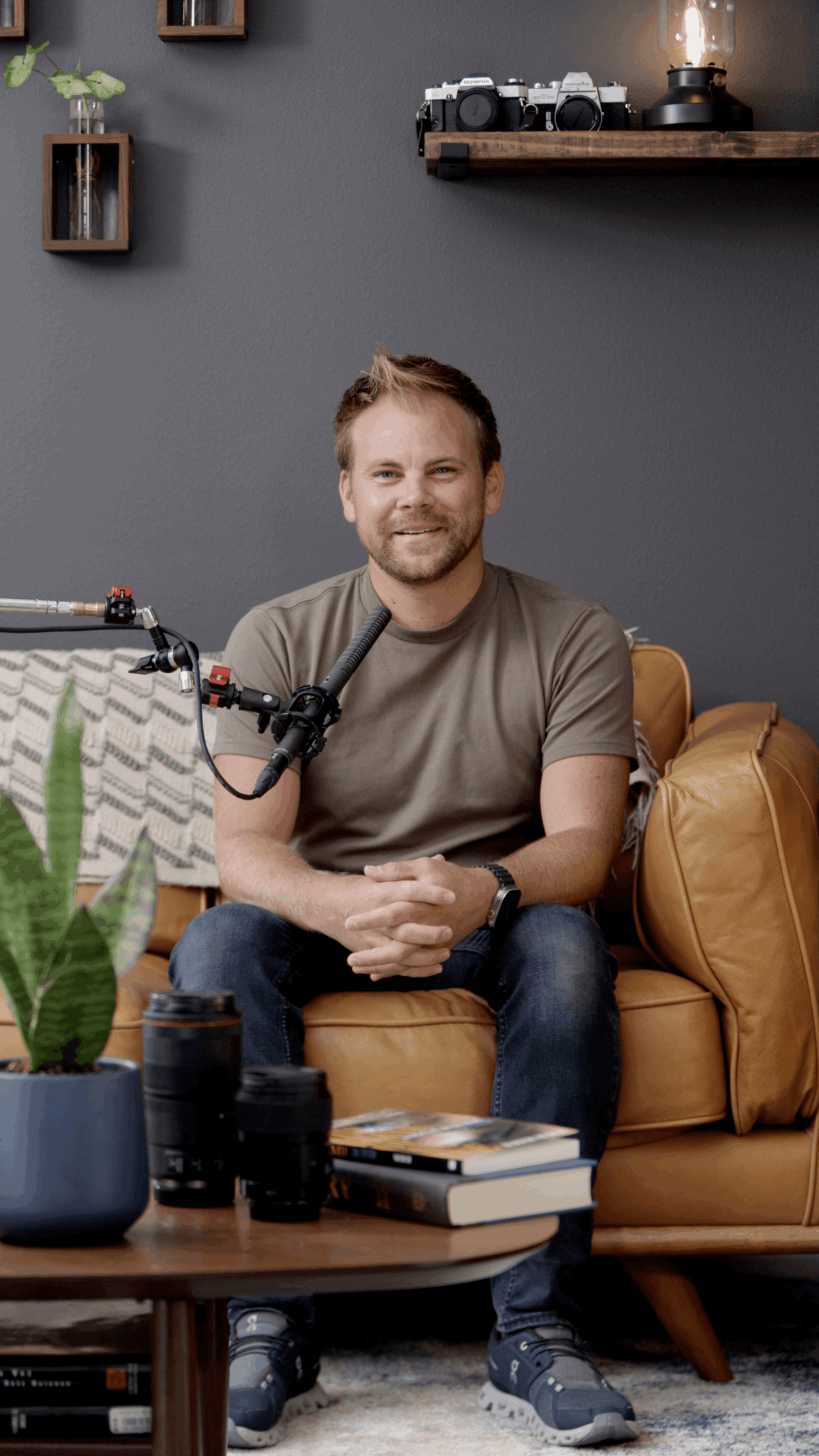We were lucky to catch up with Robbie Patton recently and have shared our conversation below.
Robbie, looking forward to hearing all of your stories today. Let’s jump into the story of starting your own firm – what should we know?
I am currently in the process of transitioning from being a freelance video editor to starting a production company that will handle everything. After being a staff video editor for 6 years and two years of being a freelance video editor. I felt the need to have more control over which kinds of video I make, as well as the quality of those videos. I get clients from word-of-mouth and some cold outreach. For cold outreach I have been filming myself talking to the potential client and sending that video embedded in an email with a custom thumbnail with their name on and my face on it. It adds a super personal touch that seems to get a good response rate. My goal with this new production company is to not just make videos but help clients to create a strategy around photo and video so that they can get more business themselves.
Separately from that, I started a small education company two years ago that teaches photography and filmmaking. We teach kids and adults and it has been going really well. I have a lot of lessons that I’ve already learned about developing training content how to run a live class as well as what it takes to pull in traffic on Instagram and get them interested with your promotional content. One lesson I have learned with the educational company is that my promotional content, although it was high-quality, I needed to borrow more inspiration from YouTube. For example, the hook, the first 15-30 seconds of the video and the thumbnail are so important and I am just now getting to a point where I’m about to get it right.
For anyone who wants to start something like either of these companies, I would suggest staying in your current job and learning the skills required to do these other trades first. For example, you cannot just be a good filmmaker and start a firm. It requires knowledge of how to run a business, which is a completely different set of skills. It requires learning how to sell yourself, how to negotiate, how to market etc. Once you learn these things you’re in a much better position to support yourself.

As always, we appreciate you sharing your insights and we’ve got a few more questions for you, but before we get to all of that can you take a minute to introduce yourself and give our readers some of your back background and context?
It’s probably cliché to say, but watching early Spielberg films as a kid convinced me that being a filmmaker would be the coolest job that you could have. Of course I never considered that I would actually be a filmmaker to support myself, but I learned filmmaking and practiced it just as a creative outlet. All during middle school and high school I made films just for fun. It wasn’t until I was 22 that anyone offered to pay me to edit a wedding video and that’s when I really started to think that it could be attainable to support myself with filmmaking. For a few years, I did wedding films and small promotional videos for things like Kickstarter. When I was 26 I was hired full-time as a staff video editor. I was able to edit music videos, corporate content, movie trailers, explainer videos,, short documentaries, educational videos and I even got to help edit some feature length films. I continued to be voracious for learning the craft and so I started to collect what I thought was the best training material and compiling it into lessons. Those lessons weren’t being used for anything other than my own thought process and compiling them taught me even more. I realized that one of the best ways to learn something deeply is to try to teach it. Now I use all the various filmmaking experience that I have to bring something unique to businesses that bring in 1,000,000 to 10,000,000 per year. I create video business cards for front pages of websites and testimonials that are very effective for niche products and services. One of the greatest ways to show a potential client your service is to have a video testimonial that speaks to that potential client. For example, if Texaco has a need to repair all of their high-pressure water lines, it could cost literally millions per minute that those pipes are shut down. The traditional way to solve that situation is to cut out and replace all of that pipe. However, there is a construction company in South Florida that can line the inside of those pipes with epoxy, meaning that they do not need to cut out the entire pipe all throughout the buildings. Instead they only need to go to the entry point and the exit point of that pipe and they invert a wet epoxy liner in the pipe and let it cure, essentially making a new pipe inside the old busted one. Like is said, it’s niche. This means that many many millions of dollars can be saved, literally millions per minute that they can save. That process though isn’t easy to convince people of, that’s where testimonials and plainer videos come in.
Solving problems like these with video is like working through a puzzle. And the more you can solve someone’s problem the more addicting that feeling is. I like to take elements of the art of filmmaking that you would see at work in feature length films, and apply it to videos that may seem to have nothing to do with Hollywood films. They might seem dull by comparison when you first hear about them but if you can connect with the material, you may be able to put enough life into it so that the audience also can be excited about it. Ultimately filmmaking is all about connecting to others emotionally and it’s a skill I love to use and to learn more about.

Have any books or other resources had a big impact on you?
I feel like I could write an entire book that is just a list of all the resources I would recommend. Most of those resources are filmmaking resources however, with me making a change in my business I have been reading more business books. Alex Hormozi’s $100 million offers is a very succinct book that taught me about how to come up with an offer that my clients would feel stupid not accepting.
I also would highly recommend Creativity inc. Which is about how Pixar was organized to promote creativity.
If anyone wants a huge list of books or a picture of my book cabinet feel free to reach out.

How did you build your audience on social media?
One thing that I have noticed that is very effective is getting the audience involved. Anytime I allow the audience to be opinionated and to shout their opinion I get a ton of engagement. For example, for my education company, I made a poll on Instagram that asked what type of content they would enjoy seeing on a regular basis from that Instagram channel. Not only did I learn what they would enjoy the most, which I could then follow up on, but I also got a tremendous amount of engagement on that post. Where as the previous day I posted a beautiful photograph got much much less engagement. On this topic, I really enjoyed the book Superfans which teaches how to make followers feel closer to your brand and allowing them to become your superfan.
For me though, the followers and fans and all that are fine, but what I value more than that is the ability to do something that is interesting to me and to be able to make my schedule the way I want it to be.
Contact Info:
- Website: Robbiepatton.com
- Instagram: Patton.Robbie
- Twitter: Filmpatton





